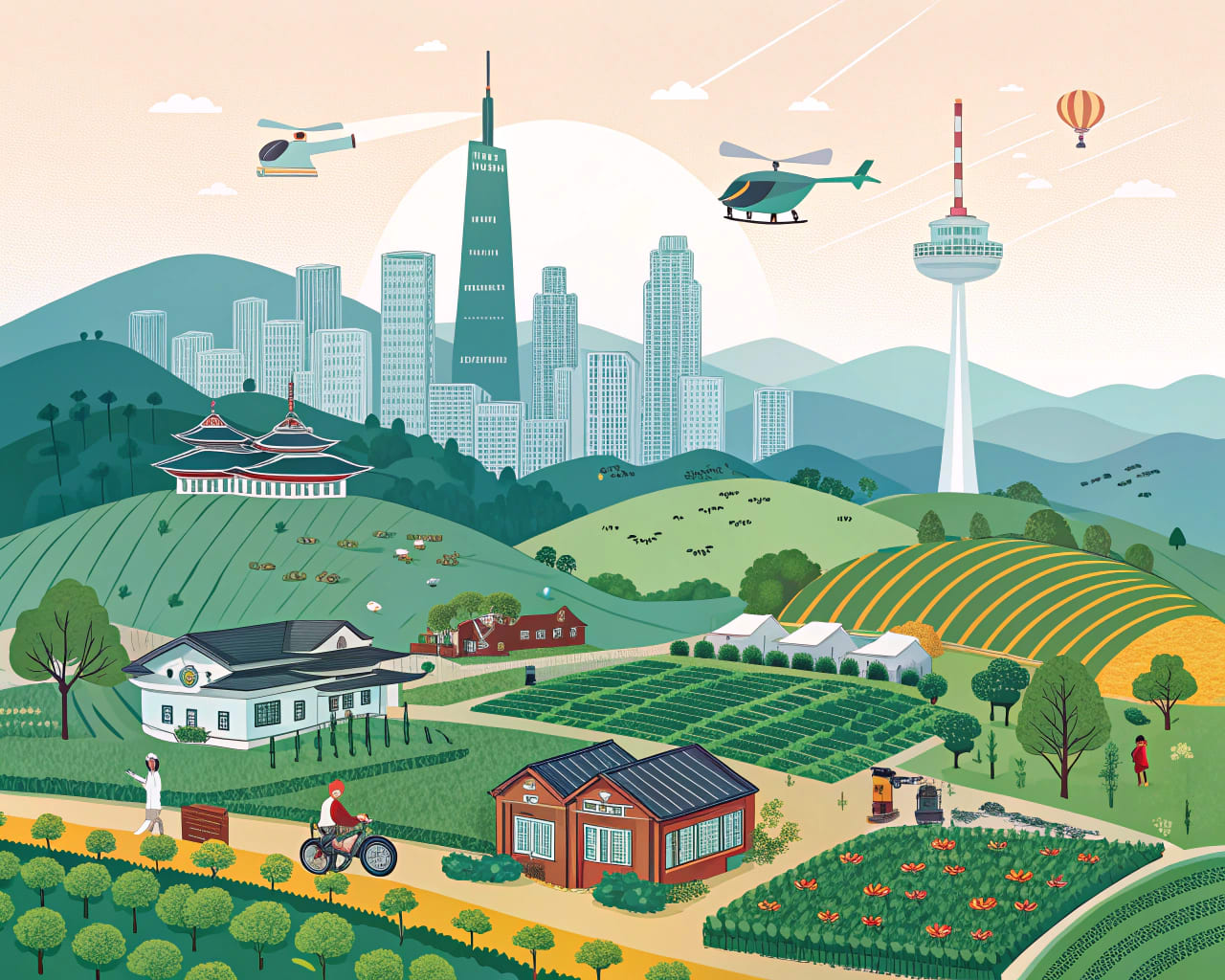South Korea’s agriculture, a vital pillar supporting 51 million people, blends tradition with cutting-edge innovation on just 1.6 million hectares of arable land. Contributing 2% to GDP and employing 1.2 million workers, the sector faces pressures from climate change, an aging workforce, and import reliance. Yet, through smart farming, policy reforms, and sustainable practices, South Korea is redefining its agricultural future. Let’s explore the challenges, impacts, and transformative solutions driving this dynamic evolution.
Challenges Facing South Korean Agriculture
South Korea’s agricultural sector confronts significant obstacles. With only 17% of land arable, the nation imports 70% of its food, costing $25 billion annually. Climate change reduces yields, with a 2023 KREI study projecting a 15% drop in rice production by 2040 due to rising temperatures and erratic monsoons. Soil degradation, affecting 25% of farmland, results from overuse of fertilizers (300 kg per hectare, triple global averages) and erosion, costing 1 million tons of topsoil yearly.
The farmer population, with 65% over 60, is shrinking by 3% annually, exacerbating labor shortages. Small farms, averaging 1.4 hectares, limit mechanization, with only 30% using advanced equipment. Water scarcity is critical, with agriculture consuming 50% of freshwater, yet 40% of irrigation systems are outdated. Post-harvest losses, at 10% of output ($2 billion yearly), stem from inadequate cold storage and supply chains. Urbanization further reduces farmland by 2,000 hectares annually.
Impacts on Society and Economy
The consequences are far-reaching. Food security is strained, with a self-sufficiency rate of 45%, among the lowest for developed nations. High production costs make local produce 20% more expensive than imports, burdening consumers. Economically, low farmer incomes—$15,000 annually, half the national average—drive rural poverty and migration, with 20% of rural youth leaving annually. Environmental impacts include pesticide runoff polluting 20% of waterways, harming biodiversity in the Yellow Sea, and greenhouse gas emissions from farming, at 4% of South Korea’s total.
Despite challenges, South Korea’s agricultural output, valued at $30 billion, excels in quality. Rice yields, at 5.2 tons per hectare, outpace many global standards. However, import dependence and an aging workforce threaten sustainability, while chemical-intensive practices demand greener alternatives.
Innovative Solutions and Progress
South Korea is revolutionizing agriculture through technology and policy. Smart farming, covering 300,000 hectares, uses drones, IoT sensors, and AI to boost yields by 25% and reduce water use by 20%, per a 2024 RDA report. Autonomous greenhouses, like those in Gyeonggi Province, produce 15 times more per hectare than traditional farms. Digital platforms, such as Nonghyup’s e-market, connect 500,000 farmers to consumers, increasing incomes by 18%.
The Rural Development Administration’s 2030 Vision invests $2 billion in climate-resilient crops, with high-yield rice varieties boosting output by 10%. Organic farming, supported by $500 million in subsidies, spans 3% of farmland, up from 1% in 2015. Micro-irrigation systems, covering 200,000 hectares, save 25% of water. Cold chain upgrades, with 3,000 new facilities, cut losses by 6%. Alternative proteins, like plant-based kimchi, are gaining traction, with a $1 billion market by 2030.
A Call to Action
South Korea’s agricultural future demands bold action. Doubling R&D investment to 3% of agricultural GDP can scale innovations like gene-edited crops. Training 500,000 young farmers in smart farming and digital tools is critical. Expanding cooperatives, now 1,300 strong, can empower smallholders. Consumers must support local, sustainable produce to reduce import reliance and emissions.
International partnerships, like South Korea’s collaboration with Japan on precision agriculture, can share expertise. By blending cultural staples like rice with technologies like robotics, South Korea can ensure food security and environmental health. The time is now to cultivate a sustainable, resilient agricultural system that nourishes the nation and sets a global benchmark. Let’s act to secure South Korea’s agricultural legacy.
